24x7 Service
86644347090
Follow Us:
You Want a Locksmith with Souther Values and Island Trust
Fast, friendly, and dependable locksmith service from a local who knows what matters: honesty, hard work, and treating people right — whether you live here year-round or you're just visiting.
Your Trusted Local Locksmith in Hilton Head, Bluffton, and the Lowcountry
Honesty - Hardwork - Integrity
We're Here to Help You When You Need us Most
Welcome to Hilton Head Locksmith, where Southern values meet modern security. Born and raised on Lowcountry soil, we believe in doing right by our neighbors—with straight talk, fair prices, and service you can count on. Whether you're locked out of your car, upgrading your home security, or managing property access for a vacation rental, we’re here to get it done right the first time—with a handshake and a smile.
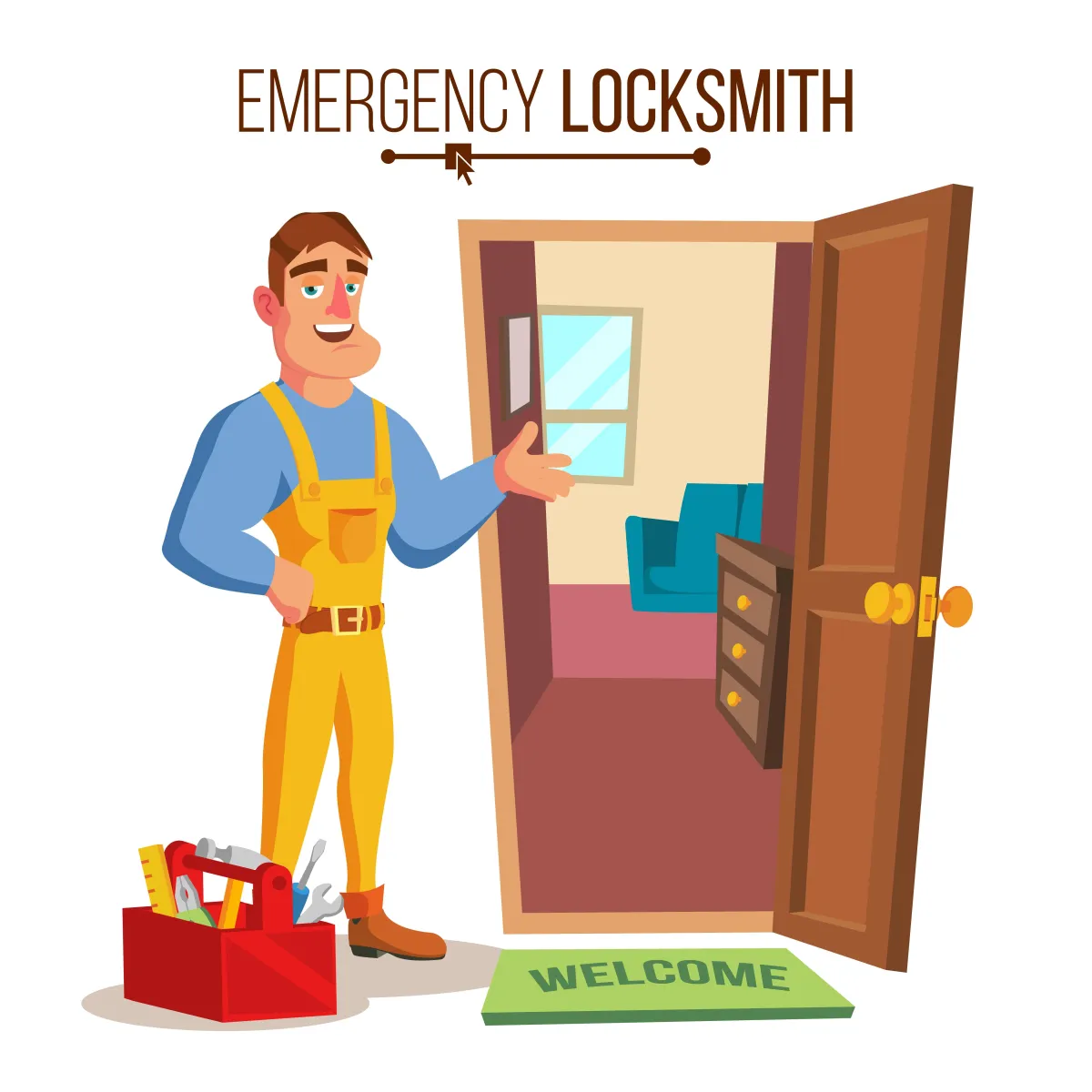
We're Here for Locals, Realtors, and Vacationers
From Palmetto Dunes to Bluffton and everywhere within an hour’s drive, we bring fast, professional locksmith services you can rely on!

Homeowners
Rekeying, lockouts, smart lock installs, and home security upgrades.

Property Managers & Realtors
High-volume rekeying, lock replacements, and master key systems.

Commercial Clients
Access control, high-security locks, door hardware, and emergency response.
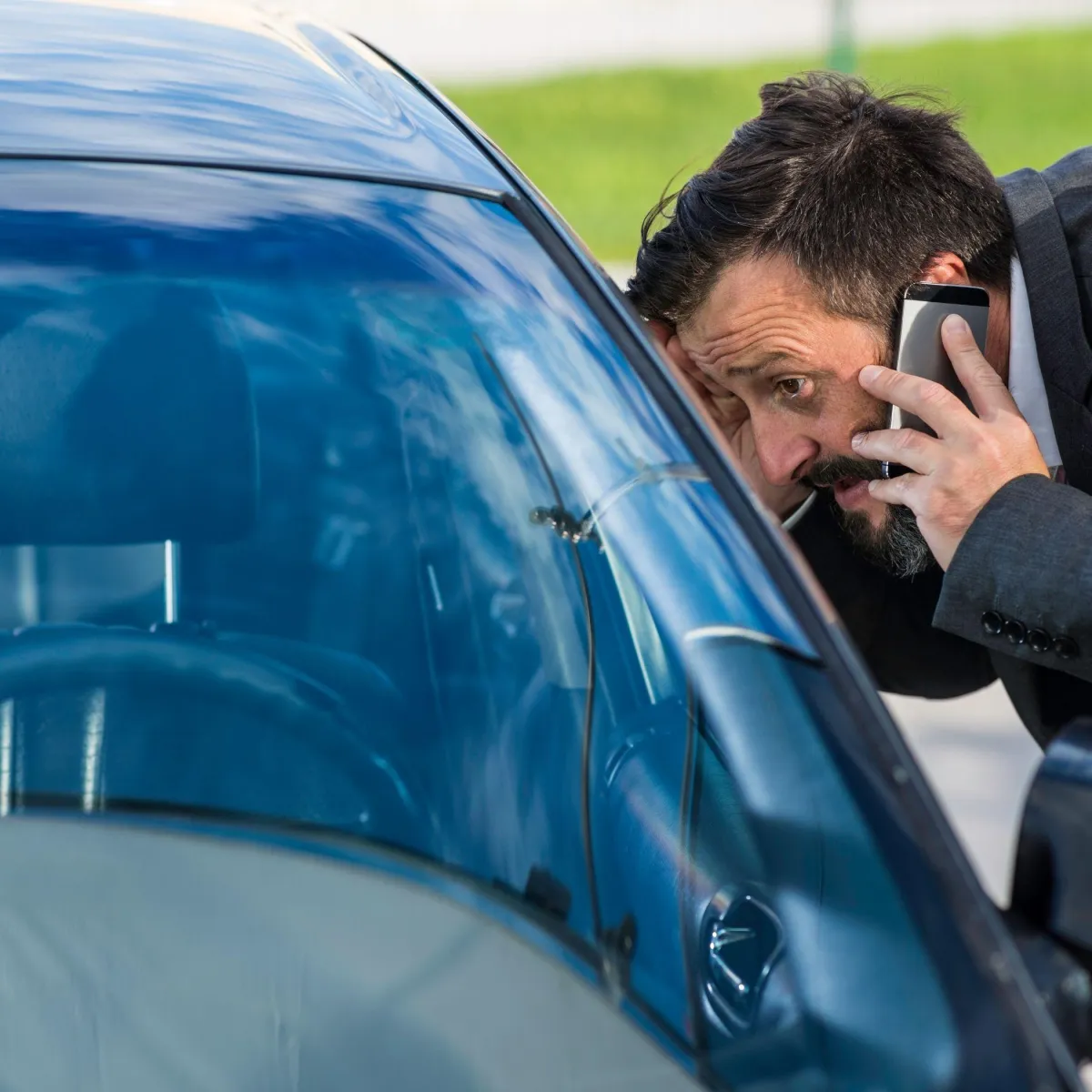
Automotive Locksmith Services
Lockouts, Lost Keys, Key Programming & More
If you've lost your keys - don't worry! We can a new key and program electronic keys from any vehicle make and model. We invest in specialized equipment required to work with both domestic and European cars. No tow truck required!
What Makes Hilton Head Locksmith Different? 🔐
We're Local - We're Experienced and We Care - A Lot!
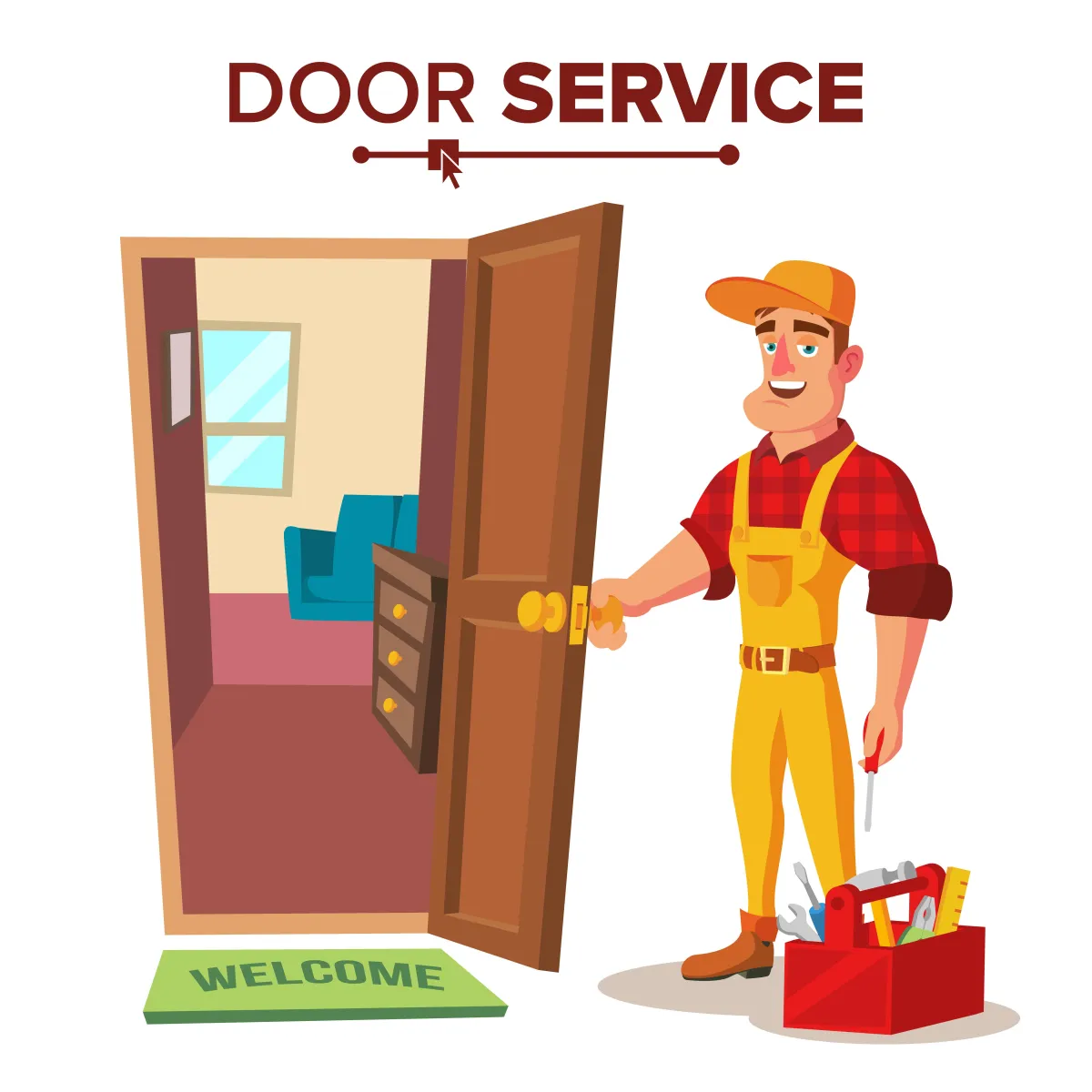
While the other guys treat you like a number, we treat you like a neighbor. We're not some big-box chain—just a hard-working Southern locksmith with the tools, training, and tenacity to solve your problems without the runaround.
Fast Response Times
Clear - Upfront Pricing - No Games
Locally Owned & Operated
Certified, Insured, and Experienced
Respectful of Your Time and Property
Why Locals & Visitors Choose Us
Hilton Head is more than a vacation destination—it’s our home. We know the winding roads, the gated communities, and the challenges that come with managing homes and businesses in the Lowcountry. Whether you're here for a week or here for life, we treat every job like it’s our own front door.
Integrity
Our word is our bond - and you are our priority. We're here to help you, honestly, fairly, and quickly.
Our Skills
We're constantly training and updating our skills and equipment so that we can service any need - no matter how complex, computerized, or new. We don't hack it - we know how to do it right the first time.
Our Guarantee
We stand behind our work - if something goes wrong - we'll make it right - if we break it - we fix it - if we can't fix it - we replace it. You have a NO WORRIES Guarantee you can rely on for life.
Don't Get Burned by a Bad Locksmith
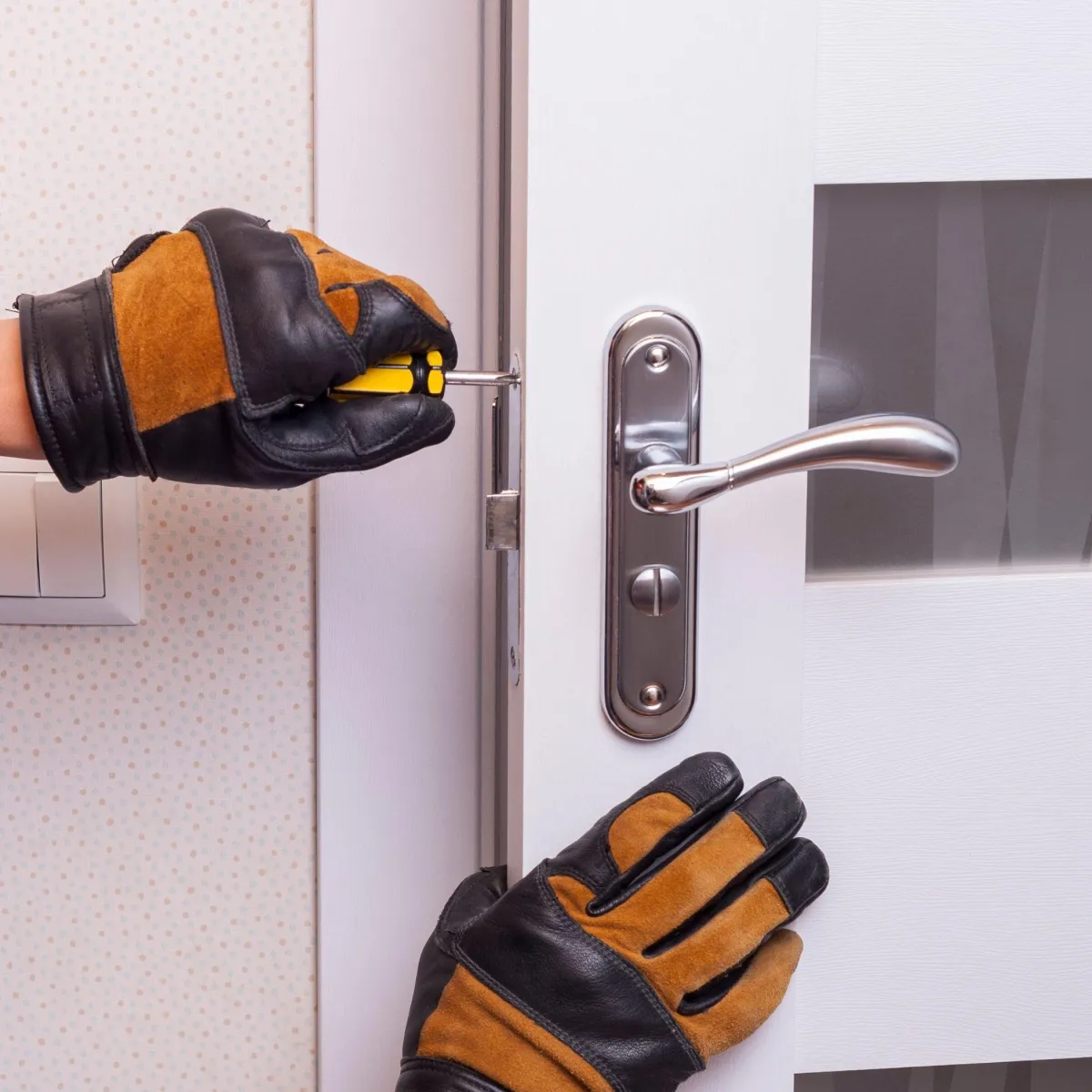
When you’re locked out, stressed, or in a hurry, it’s tempting to call the first number you see. But a bad locksmith can cost you more than just money. Shoddy work, surprise charges, and shady practices are all too common. Choose Hilton Head Locksmith for peace of mind—and Southern service done right.
Call Today - We're Just Down the Road!
If You Need a Locksmith Right Now - We're here to help! Want a qutoe for a project? We'll talk you through your options and give you honest advice - no pressure, no gimmicks, zero hard sell.
Locksmith Thoughts - Our Blog
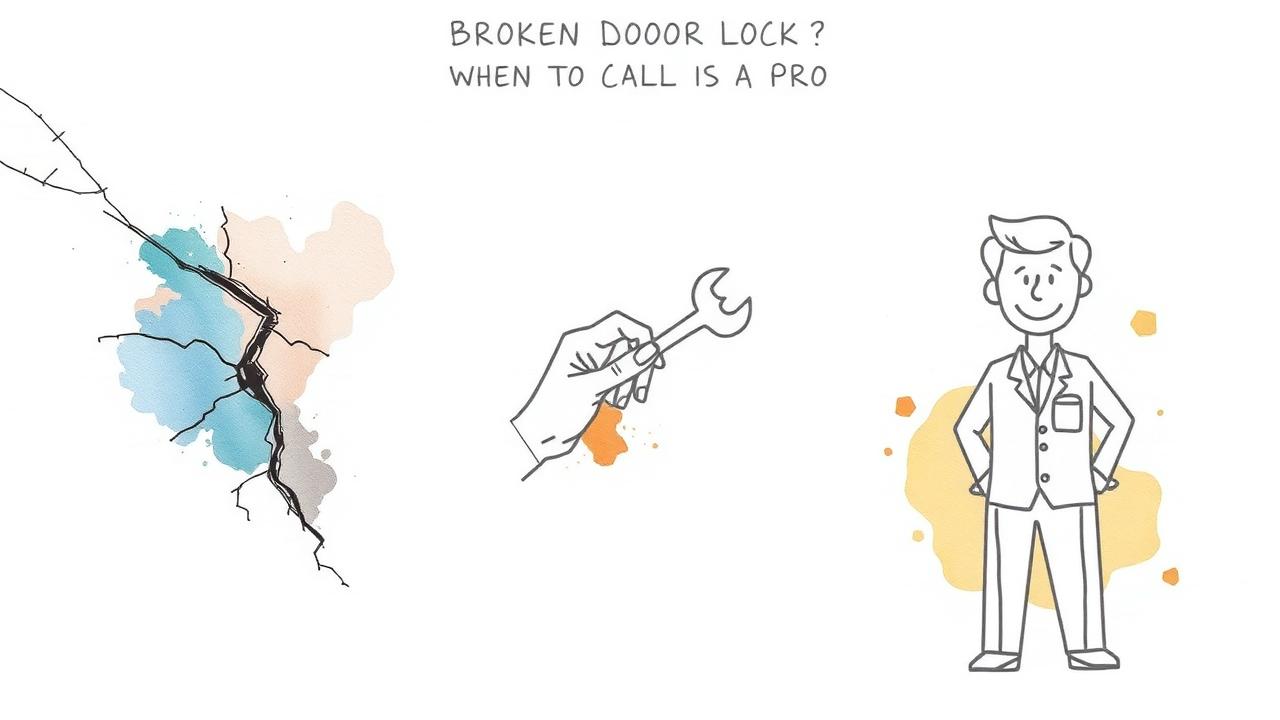
Broken Door Lock? How to Repair or When to Call a Pro
Door locks are important for keeping your home safe, but they don’t last forever and can sometimes break or stop working properly. If a lock stops working, you might first try some easy fixes like tightening loose screws, lubricating the lock with special oils, or adjusting the latch alignment. However, if problems like a broken key inside the lock, jammed mechanisms, or faulty internal parts occur, it’s best to call a professional locksmith. Complex locks such as smart or digital ones often need expert help too. Knowing when to fix it yourself and when to get a pro can save you time and keep your home secure.
Table of Contents
- How to Identify the Problem with Your Broken Door Lock
- Fixing Loose Door Knobs and Handles
- Adjusting Misaligned Latches and Strike Plates
- What to Do When Your Key Won’t Turn
- Removing a Broken Key from the Lock
- Dealing with Faulty Internal Lock Mechanisms
- Troubleshooting Jammed Door Locks
- How to Thaw Frozen Door Locks Safely
- Repairing Faulty Lock Bolts
- Handling Locks Damaged by Break-Ins
- When to Call a Professional Locksmith
- Cost Breakdown for DIY vs Professional Repairs
- Tips for Regular Lock Maintenance and Care
- Choosing the Right Locksmith for Complex Locks
- Frequently Asked Questions 15.1. What are the common signs that a door lock is broken or needs repair? 15.2. Can I fix a broken door lock myself, or should I always call a professional? 15.3. What tools and materials do I need if I want to repair a simple door lock problem on my own? 15.4. How do I know when a door lock is beyond repair and needs to be replaced? 15.5. What safety precautions should I take when attempting to repair a door lock myself?
How to Identify the Problem with Your Broken Door Lock

Start by checking if the key turns smoothly in the lock cylinder or if it gets stuck at any point. If the key feels jammed or loose when fully inserted, that can indicate worn parts inside the lock. Listen carefully when turning the key or door knob, unusual sounds like grinding, clicking, or scraping often point to internal damage or dirt buildup. Next, examine the door knob or handle itself; if it feels loose or wobbly, tightening the screws might help, but it could also mean the internal mechanism is failing. Test the deadbolt or latch by operating it several times, if it doesn’t extend or retract properly, the issue might be with the bolt or alignment. Look closely for visible signs of damage like cracks, broken pieces, or rust that could affect function. Sometimes the lock cylinder spins freely without actually engaging the bolt or latch, which means the connection inside is broken. Also, check if the door closes fully and if the latch lines up correctly with the strike plate, misalignment can prevent locking. If you have multiple keys, try them all to rule out a worn or damaged key causing the problem. Don’t forget environmental factors: cold weather can freeze locks, and dirt or dust can jam mechanisms. Identifying these symptoms early can help you decide whether a simple fix is enough or if you need professional help.
Fixing Loose Door Knobs and Handles
If your door knob or handle feels loose, start by locating and tightening all the visible screws on the knob and handle plates. Sometimes, decorative covers hide additional screws, so gently remove these covers to access and tighten any hidden ones. Make sure to use a screwdriver that fits properly to avoid stripping the screws. If some screws are stripped or won’t tighten, swapping them out for slightly longer or thicker screws can provide a better grip. Next, check the spindle, the metal rod connecting the two knobs through the door, to ensure it’s firmly seated and not slipping. After tightening everything, apply a light lubricant to the moving parts to help the knob turn smoothly. Test the knob by turning it to confirm it no longer wobbles and operates without resistance. If it’s still loose, the internal mechanism might have worn or broken parts, such as damaged washers or springs inside the assembly. Replacing these small components can often fix the issue. But if the handle remains loose after these steps, it might be time to replace the entire door knob set for a more secure and lasting solution.
Adjusting Misaligned Latches and Strike Plates
When your door latch doesn’t line up with the strike plate, it can make locking or closing the door frustrating. Start by closing the door slowly and watch where the latch hits the strike plate. If it’s off, mark the exact spot of contact. Next, use a screwdriver to loosen the screws holding the strike plate in place. Shift it slightly up, down, or sideways to better match the latch’s position, then tighten the screws and test the door. Sometimes the recess in the door frame where the strike plate sits needs a bit of reshaping; carefully use a chisel to enlarge or adjust that space for a better fit.
Don’t forget to check if the door itself is the problem. Warping or sagging can cause misalignment, so inspect the door edges and hinges. If the door is sagging, tightening or adjusting the hinges often helps realign things. For added stability, consider replacing the strike plate screws with longer ones that dig deeper into the frame.
After making adjustments, test the door several times to ensure the latch slides smoothly into the strike plate without sticking or jamming. This simple fix can often solve misalignment issues without needing a full lock replacement or professional help.
What to Do When Your Key Won’t Turn
If your key won’t turn in the lock, start by making sure the key is fully inserted and not stuck halfway. Sometimes, simply pushing the key in all the way can fix the issue. Try gently wiggling the key back and forth while turning it to loosen any stiffness inside the lock. Take a moment to inspect the key itself for any damage or excessive wear, as a bent or worn key might not engage the lock properly. Avoid forcing the key to turn, since this can lead to it breaking off inside the lock, which creates a bigger problem.
If the key still won’t turn, apply a graphite-based lubricant or a lock-specific lubricant into the keyhole to ease the internal mechanism. It’s important to avoid oil-based lubricants because they attract dust and grime, which can worsen the problem over time. If you have a spare key that’s similar, try using it to rule out key damage. In colder weather, locks can freeze, so warming your key slightly before inserting it can help thaw any ice inside.
If lubrication and these simple tricks don’t work, the lock cylinder might be worn out or damaged and could need replacement. At this point, it’s best to call a professional locksmith to avoid causing further damage and to ensure your lock functions correctly and safely.
Removing a Broken Key from the Lock
When a key breaks inside your lock, the first rule is not to force the broken piece deeper, as this can make removal much harder. If part of the key is visible, gently use needle-nose pliers to grip and pull it out. Applying a graphite lubricant inside the lock can help loosen the key fragment and prevent jamming during extraction. For a better grip, a broken key extractor tool is often effective, especially if the key piece is lodged deeper inside. Tapping lightly on the lock can also loosen the stuck fragment. If you don’t see the key piece, try using a thin wire or an unfolded paperclip to hook and pull it out carefully. Avoid inserting another key, as this might push the broken piece further in. If these DIY methods don’t work, resist the urge to drill the lock yourself, since this can cause serious damage. Instead, call a professional locksmith who has the right tools and experience to safely remove the broken key. After removal, it’s a good idea to consider replacing the lock cylinder to avoid future problems caused by wear or damage from the broken key.
Dealing with Faulty Internal Lock Mechanisms
If your key turns but the bolt doesn’t move, it’s a clear sign the internal lock mechanism might be failing. Start by carefully removing the lock from the door so you can inspect its internal parts. Look for worn components, broken springs, or any debris that could be blocking movement. Using compressed air can help blow out dust and dirt, while a suitable cleaner can remove stubborn grime. After cleaning, lightly lubricate the internal parts with a lock-specific lubricant to help everything move smoothly. If you notice any worn or broken parts and replacements are available for your lock model, swap them out. However, if the internal components are damaged beyond repair or parts aren’t serviceable, it’s often easier and safer to replace the entire lockset. Always avoid forcing the mechanism, as this can cause more damage. Checking the manufacturer’s instructions or watching repair videos tailored to your lock model can provide helpful guidance. Before reinstalling the lock, test its operation several times to make sure everything functions properly. For complex or high-security locks, it’s best to consult a professional locksmith to ensure the repair is done correctly and your security isn’t compromised.
Troubleshooting Jammed Door Locks

If your door lock is jammed, the first step is to check for dirt, dust, or debris inside the keyhole or lock mechanism. These particles can build up over time and prevent the key from turning smoothly. Use compressed air to blow out any loose dirt from the lock. After that, apply a penetrating oil or a lubricant specifically designed for locks, such as graphite-based sprays, to dissolve grime inside the mechanism. Avoid generic oils because they can attract more dust and make the problem worse. Insert and remove the key gently several times to help spread the lubricant evenly. Also, inspect your key for any bends or damage that might cause it to jam. Weather conditions can play a role too, cold temperatures might freeze the lock or cause internal parts to swell, making it hard to turn. For electronic locks, try resetting the system or replacing the batteries, as low power can cause malfunctions. Remember, never force the key or the lock, as this could break internal parts and make repairs more costly. If your lock remains jammed after cleaning and lubrication, it’s best to call a professional locksmith to avoid further damage.
How to Thaw Frozen Door Locks Safely
When your door lock freezes in cold weather, it’s important to thaw it safely to avoid damage. Start by warming your key gently: hold it under warm water (not boiling) or near a radiator. Once the key is warm, insert it slowly into the lock to help melt the ice inside. If you have access to an aerosol lock de-icer spray, that can speed up the thawing process. Another option is using a hairdryer carefully to warm the lock area, but avoid overheating. Never use open flames or high heat sources, as these can damage the lock’s internal parts. Repeat warming the key and inserting it until the lock frees up, but don’t force the key to turn while the lock is still frozen, that can cause breakage. After thawing, apply a lubricant designed for locks to help prevent refreezing. If your lock keeps freezing, consider weatherproofing it or replacing it with a more suitable model. And if your thawing attempts don’t work or the lock shows signs of damage, it’s best to call a professional locksmith to avoid further issues.
Repairing Faulty Lock Bolts
Start by testing if the bolt extends and retracts smoothly when you turn the key or knob. If it sticks or doesn’t move properly, remove the lock from the door to take a closer look at the bolt mechanism. Dirt, corrosion, or worn parts inside can cause issues, so clean the bolt and surrounding components thoroughly. Use a lubricant made specifically for locks to keep everything moving freely. Check if the bolt is bent or misaligned; if it is, try straightening it carefully. Broken springs or other small parts that control the bolt’s movement can sometimes be replaced if you have the right replacements on hand. Also, make sure the bolt lines up correctly with the strike plate on the door frame, since misalignment often causes jamming. After reassembling and reinstalling the lock, test the bolt several times to confirm it works smoothly. If the bolt still won’t move after all these steps, it’s usually best to replace the entire lockset. For commercial doors or high-security locks, it’s wise to call a professional locksmith to handle repairs and keep your security intact.
Handling Locks Damaged by Break-Ins
After a break-in, the first step is to carefully assess the visible damage to your door lock, the door itself, and the surrounding frame. Avoid trying to use a damaged lock since it may no longer secure your home properly. It’s best to contact a professional locksmith who can perform a thorough security assessment and recommend necessary repairs or replacements. Often, damaged locks should be replaced with higher-security models to help prevent future break-ins. Don’t forget to check the door frame and strike plate as well, these parts might need repair or reinforcement to restore full strength. When you replace locks after a break-in, be sure to change all related keys to keep your home secure. You might also consider upgrading your security by installing additional features like deadbolts or smart locks. Before starting any repairs, document the damage with photos for insurance purposes. It’s important not to delay fixing break-in damage; quick action helps maintain your home’s safety and peace of mind. Scheduling a locksmith inspection can also provide valuable advice on upgrading your home’s security after such an event.
When to Call a Professional Locksmith
If you're unsure about what’s causing the lock problem or don’t feel comfortable fixing it yourself, it’s a good idea to call a professional. Locks can be tricky, especially with complex types like digital, smart, or high-security commercial locks that need special tools and knowledge. For example, if a key breaks inside the lock and you can’t safely remove it with DIY tools, a locksmith can extract it without damaging the lock. Also, when the internal mechanism is faulty or worn out, replacement might be necessary, which is best handled by a pro. After a break-in or attempted break-in, calling a locksmith helps assess damage and upgrade your security. Sometimes, jammed locks won’t respond to cleaning or lubrication, or frozen locks won’t thaw with heat or sprays, these situations call for expert help. If you want to upgrade to more secure or advanced locking systems, locksmiths have the skills to install and advise on the best options. Plus, if your lock is under warranty or your insurance requires professional service, hiring a locksmith ensures you don’t void your coverage.
Cost Breakdown for DIY vs Professional Repairs
When it comes to fixing a broken door lock, costs can vary quite a bit depending on whether you choose to handle it yourself or call in a professional. Minor DIY repairs like tightening loose knobs or lubricating the lock usually run between $10 and $50, covering basic tools and lubricants. These small fixes are budget-friendly but do carry the risk of making things worse if you're not careful. On the flip side, professional locksmiths typically charge a service call fee ranging from $50 to $100, depending on your location. Once labor and parts are factored in, you can expect most residential lock repairs to fall somewhere between $50 and $200. More complex jobs, like extracting a broken key or repairing high-tech locks, can push costs even higher because they require special skills and tools. Sometimes, if the lock is severely damaged, replacing it outright can be more cost-effective than repairing. Since prices vary based on lock type, problem complexity, and how quickly you need service, it's smart to get multiple quotes before committing to any major repair or replacement. While DIY saves money upfront, professional services offer peace of mind with proper functioning and security guarantees.
| Repair Type | Description | Cost Range |
|---|---|---|
| DIY Minor Repairs | Tightening loose knobs, lubricating locks, basic fixes | $10 - $50 |
| Professional Locksmith Service Call | Initial visit for diagnosis and minor repairs | $50 - $100 |
| Additional Labor and Parts | Extra work and replacement parts for repair | $50 - $200 |
| Complex or High-Tech Lock Repairs | Specialized skills needed for advanced locks | Varies, generally higher |
| Full Lock Replacement | Replacing severely damaged or outdated locks | Usually $50 to $200+, depends on lock type |
| Broken Key Extraction | Delicate process to remove broken keys | Often higher due to complexity |
Tips for Regular Lock Maintenance and Care
Keeping your door locks in good shape doesn't have to be complicated. Start by cleaning them regularly: use compressed air to blow out any dust or debris that can clog the mechanism. When it comes to lubrication, stick with graphite-based lubricants or lock-specific WD-40 to keep things moving smoothly. Avoid generic oils because they tend to attract dirt and grime, which can cause your lock to jam over time. If a key feels stuck, never force it to turn, that can lead to broken keys inside the lock, which is a bigger headache. It's also a good idea to check screws on door knobs and strike plates periodically and tighten them if needed to keep everything aligned properly. Keep an eye out for any signs of wear, rust, or damage, and address these issues early before they worsen. Don’t forget to keep your keys clean as well, since dirt on the key can transfer into the lock cylinder and cause problems. In colder months, using a lock de-icer spray can prevent freezing and keep your lock working smoothly. After any maintenance or repair, test your locks multiple times to make sure they operate without sticking. Finally, consider having a professional locksmith inspect your locks every so often for expert advice and to discuss possible security upgrades.
- Clean locks periodically by blowing out dust and debris with compressed air.
- Use graphite-based lubricants or WD-40 specifically designed for locks to prevent grime buildup.
- Avoid using generic oils that attract dirt and cause jams over time.
- Do not force keys to turn if they feel stuck to prevent breakage inside the lock.
- Check and tighten screws on door knobs and strike plates regularly to maintain alignment.
- Inspect locks for signs of wear, rust, or damage and address issues early.
- Keep keys clean and free of dirt or debris that can clog the lock cylinder.
- In cold weather, use lock de-icer sprays to prevent freezing of lock mechanisms.
- Test locks after maintenance or repairs to ensure smooth operation.
- Consult a locksmith periodically for professional inspection and advice on upgrading security.
Choosing the Right Locksmith for Complex Locks
When dealing with complex locks like digital, smart, or high-security systems, choosing the right locksmith is key to keeping your home safe. Start by looking for locksmiths who have specialized experience with these advanced lock types. Don't hesitate to ask about their credentials, licenses, and insurance to make sure they’re qualified and protected. Checking reviews and requesting references can give you a clearer picture of their reliability and service quality. A good locksmith will offer a guarantee or warranty on both their work and the parts they use, which shows confidence in their skills and materials. Also, ask if they use modern tools and up-to-date techniques tailored for sophisticated lock systems. It’s important they stay current with the latest lock technologies and security standards to handle any issue properly. Transparency is another must: the locksmith should clearly explain your repair or replacement options without pushing unnecessary upgrades. Getting a written estimate upfront, including labor, parts, and any extra fees, helps avoid surprises later on. Lastly, if you might need help outside regular hours, check their availability for emergency services. Choosing a locksmith who communicates openly and respects your concerns makes the whole process smoother and gives you peace of mind that your complex lock is in good hands.
Frequently Asked Questions
1. What are the common signs that a door lock is broken or needs repair?
You might notice the key won’t turn easily, the lock feels loose, or the door won’t latch properly. Sometimes you hear strange sounds when locking or unlocking, or the lock sticks and won’t move smoothly.
2. Can I fix a broken door lock myself, or should I always call a professional?
It depends on the issue. Small problems like tightening loose screws or lubricating the lock are things you can try at home. But if the lock is jammed, broken inside, or you’re unsure about the problem, it’s better to call a professional to avoid damage or security risks.
3. What tools and materials do I need if I want to repair a simple door lock problem on my own?
For basic fixes, you’ll need a screwdriver set, some lubricant like graphite powder or WD-40, a replacement latch or screws if needed, and maybe a small hammer. Always make sure you have the right size tools for your lock to avoid stripping screws or damaging parts.
4. How do I know when a door lock is beyond repair and needs to be replaced?
If the lock keeps failing to work after several repairs, if it’s severely rusted or broken inside, or if it no longer provides proper security, replacement is the safest choice. Also, outdated locks that don’t match your door’s security needs should be upgraded.
5. What safety precautions should I take when attempting to repair a door lock myself?
Make sure the door is open and secured before you start, so you don’t get locked out. Work slowly and carefully to avoid damaging the door or lock parts. Use the right tools and avoid forcing pieces that don’t move easily. If you feel unsure, it’s best to stop and call a pro.
TL;DR If your door lock is broken, start by identifying the problem, like a loose knob, misaligned latch, or key that won’t turn. Many fixes, such as tightening screws or lubricating locks, can be done yourself. For issues like broken keys, faulty internal parts, jammed or frozen locks, calling a professional locksmith is usually best. Complex or high-security locks especially need expert care. Costs for DIY repairs are low, but professional help can range depending on the task. Regular maintenance, like cleaning and proper lubrication, helps keep locks working smoothly and secures your home better.
Frequently Asked Questions
What services does Hilton Head Locksmith Offer?
At HIlton Head Locksmith, we offer a wide range of locksmith services, including residential and commercial lockouts, rekeying, lock installations, key duplication, car key programming, electronic control systems, keyfob replacement, boat re-keying, watercraft re-keying, and emergency lockout services. We're here to keep you and your property safe!
Are you available for Emergency Situations? 24x7 Calls?
Absolutely! Our friendly team is available for emergency lockout services 24/7. If you’re locked out or need urgent help, just give us a call, and we’ll be there as quickly as possible to assist you. Our AI Assistant will answer the phone, get your details, and alert a member of your staff - and our staff member will communicate with you within minutes. We're got your back - always!
Do you provide automotive lockout services?
Yes, we do! Hilton HEad Locksmith can help with car lockouts, key replacements, transponder key programming, and ignition repairs. We work with all makes and models, so you’ll be back on the road in no time. We have the technology needed and we charge a fraction of what the dealer charges.
Can you help if I've lost all my housekeys?
Of course! If you’ve lost your keys, our professional locksmiths can quickly rekey or replace your locks and provide you with new keys. Your safety and peace of mind are our top priorities!
How quickly can you help me in an emergency?
We strive to arrive as fast as possible, usually within 30 minutes or less for most locations on Hilton Head Island. We know how stressful lockouts can be, so you can count on us for prompt and caring service.
Do you offer lock upgrades for businesses?
Yes! We specialize in helping businesses stay secure with robust commercial locking systems, electronic locks, access control, and high-security lock upgrades. Let’s work together to keep your workplace safe and secure! We handle all commercial lock situations and systems.
Are you fully licensed and insured?
Absolutely—your security is our promise! Hilton Head Locksmith is fully licensed and insured. Although, it is important to note that the state of SC does not require a license for locksmithing. We do have operating licenses and we're a member of the Hilton Head Chamber of Commerce. We are fully insured and bonded. Our technicians are experienced professionals dedicated to delivering trustworthy and high-quality service.
What payment methods do you accept?
For your convenience, we accept cash, major credit cards, and debit cards. If you have any questions about payment, just ask—our team is always happy to help!
Are you a local business? Are you a franchise?
Absolutely! We’re proud to be your neighborhood locksmith based right here on the island. We do not operate a store front as our business is entirely mobile. We're not a franchise so you know you're getting a great price from a local small business.
Do you install smart locks, doorbell cameras or keyless entry systems?
We sure do! We keep up with the latest technology and can help you upgrade to a smart lock or keyless entry system to enhance your home or business security. We’ll walk you through every step, making things simple and easy. We'll even help you pick out the system that works best for you. We have some amazing systems for remote management for our property managers, landlords, and realtors. Let's find out what will make your life easier!
Get in touch with us
Our Chat Agent and AI assistant are available to answer any questions and get you in touch with a team member at any time - 24x7. We are ready to respond and solve your problems!
86644347090
Available 24x7
Learn More

Southern Service - Serious Security
Follow Us
Follow Us
Service Area:
Hilton Head Island, Bluffton, Okatie, and all points within an hour’s drive.
Services
More
Contact Us
86644347090
Available 24x7
© Copyright 2025. Hilton Head Locksmith. All rights reserved.
Thoughtfully Designed & Maintained by Advertising Raleigh

